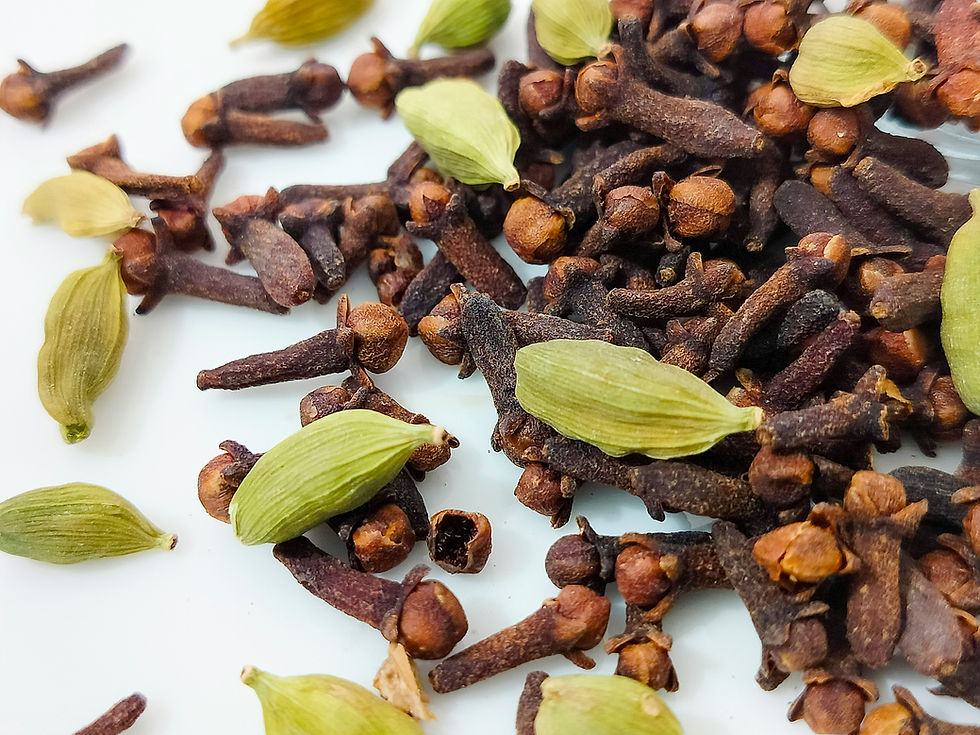The History of Coffee in Indonesia: From Colonial Commodity to National Pride
- IT DMK Cargo
- Jul 15
- 3 min read

For most Indonesians, drinking coffee is not just about enjoying caffeine. Behind every cup of coffee sipped every morning lies a long and complex history of coffee's journey in the country. From the Dutch colonial era, forced cultivation, to becoming one of the world's largest coffee producers today, Indonesia has an intriguing story to explore.
The Arrival of Coffee in the Archipelago
History records that coffee was first introduced to Indonesia by the Dutch through the VOC (Vereenigde Oostindische Compagnie) trading company around 1696. Arabica coffee seeds brought from Malabar, India, were planted in Batavia (now Jakarta). Although the initial planting failed due to floods and earthquakes, the second attempt in 1699 was successful.
It didn't take long for the Dutch to begin exporting coffee from Batavia to Europe in 1711. Coffee from Java then gained a high reputation and became known as “Java Coffee.” From that point on, coffee cultivation spread to various regions of the Indonesian archipelago, including Sumatra, Sulawesi, Bali, and Timor.
Forced Cultivation and Trade Monopoly
The success of Indonesian coffee was closely tied to the forced cultivation policy (Cultuurstelsel) implemented by the Dutch in 1830. Under this system, farmers were required to cultivate export commodities, including coffee, whose yields were shipped to the Netherlands.
While it initially boosted production and solidified the VOC's position as a major player in the global coffee market, the forced cultivation system also left deep scars on local farmers. Many lost their land, suffered from starvation, and lived in misery.
Leaf Rust Outbreak and Transition to Robusta
By the late 19th century, Arabica coffee plants in Indonesia were hit by a leaf rust disease (Hemileia vastatrix) that destroyed most of the plantations. In response, the colonial government attempted to replace Arabica with Liberica, but the results were unsatisfactory.
The solution was eventually found by introducing the Robusta variety, which is more resistant to disease and suitable for cultivation in lowland areas. Since then, Robusta has become the dominant coffee variety in national production, particularly in East Java, Lampung, and South Sumatra.
The Independence Era and Plantation Nationalization
After independence in 1945, all Dutch assets and plantations were nationalized by the Indonesian government. Many coffee plantations were managed by state-owned enterprises (SOEs) such as PTPN (Perkebunan Nusantara).
However, over time, the role of small farmers grew increasingly significant. Currently, over 90 percent of Indonesia's coffee production is produced by smallholder farmers managing plots of less than one hectare.
The Rise of Specialty Coffee and Coffee Culture
Since the 1990s, the world began to recognize the term “specialty coffee.” Indonesia was no exception. High-quality coffees from Gayo, Mandheling, Toraja, Kintamani, and Bajawa began to capture the world's attention. Their unique flavors and distinctive aromas made Indonesian coffee increasingly sought after.
This phenomenon was further supported by the proliferation of modern coffee shops in major cities. Drinking coffee is no longer just a routine but a lifestyle. The “coffee culture” is increasingly popular across all age groups, with a variety of menus ranging from espresso, latte, to coconut sugar milk coffee, which recently went viral.
Indonesia, a Major Player on the Global Coffee Map
To date, Indonesia ranks fourth as the world's largest coffee producer, following Brazil, Vietnam, and Colombia. The national production total exceeds 700,000 tons per year, with a significant contribution from the Robusta variety.
However, Indonesian Arabica coffee remains a favorite in the export market, particularly among specialty coffee enthusiasts. Its distinctive flavors, such as earthy, nutty, and winey notes, hold a unique appeal on the global stage.
Coffee exports don't have to be complicated.
Through Mandala.trade, buying, selling, and shipping coffee becomes easier, safer, and more reliable.
It's time for Indonesian coffee to break into the global market!
Contact us via WhatsApp and Email below:
WhatsApp: +62 813 9669 0008





Comments